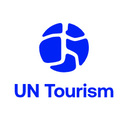UNWTO Agenda Receives Strong Support at Executive Council and Introduces Technology Forum

he World Tourism Organization (UNWTO) concluded its 109th Executive Council session in Manama, Bahrain today, with Members showing appreciation both for progress made under the 2018 institutional priorities and for the Organization's financial stability and restructuring process. Tomorrow UNWTO will also introduce a forum named 'Tourism Tech Adventure: Big Data Solutions, bringing together the 'ecosystem' of tourism innovation and raising the sector's role in the digital agenda.
A successful 109th session of the UNWTO Executive Council brought with it much appreciation of the Organization's efforts in 2018. A number of Member States expressed great support for UNWTO's efforts to prioritize tourism in the 2030 Agenda for Sustainable Development. The executive management team was praised for creating a cleaner structure more equipped to effectively respond to Members' requests, as well as the clear management priorities and sharp focus placed on UNWTO's work areas of education and digital transformation.
A mere ten months into the new mandate, UNWTO was able to communicate showing a financial surplus. At this point in the year, the Organization has received higher contributions than in the last three years and the highest percentage of budgetary income since 2014, with expenditure also on target.
UNWTO's Secretary-General Zurab Pololikashvili gave thanks to Bahrain, the host country for the proceedings. "Being hosted in Bahrain is very relevant. Here you can see how innovation and being a smart destination can be positioned high on the political and economic agenda, and how supporting tourism education and capacity building is a sound investment", he said.
On the margins of the Council UNWTO held a high-level workshop on data-driven tourism management. The Organization has introduced a new forum, 'Tourism Tech Adventure: Big Data Solutions', where panellists debate how open data platforms are revolutionizing tourism, along with how to stimulate venture capital and greater gender equality in tourism and technology.
'Tourism Tech Adventure: Big Data Solutions' will also welcome another round of pitches for finalists of the 1st UNWTO Tourism Startup Competition in Collaboration with Globalia, launched in June 2018 to identify companies that can foster the sector's digital transformation. The finalists' projects will be presented at the next International Tourism Fair of Madrid (Fitur) in January 2019.
The forum serves as a follow-up to the official World Tourism Day 2018 celebrations on 27 September in Budapest, Hungary, under the theme of 'Tourism and the Digital Transformation', and a precursor to the upcoming UNWTO and World Travel Market ministerial summit in London, UK (6 November) on investment in tourism technology. All are part of UNWTO's ongoing strategy to give tourism its deserved prominence on the digital agenda. Secretary-General Pololikashvili signed cooperation agreements during the Executive Council with the tourism authorities of Argentina and Portugal to strengthen UNWTO's cooperation agenda on innovation in tourism.
Mr. Pololikashvili announced during the Council that UNWTO governing bodies' meetings will have a specific overarching thematic focus each year. After 2018's focus on digital transformation, 2019 will look at employment and education in line with the theme of World Tourism Day 2019: 'Tourism and Jobs: a better future for all'.
Useful links:
109th session of the UNWTO Executive Council
UNWTO & WTM Ministers' Summit 2018
1st UNWTO Tourism Startup Competition
About UN Tourism
The World Tourism Organization (UN Tourism) is the United Nations agency responsible for the promotion of responsible, sustainable and universally accessible tourism.
As the leading international organization in the field of tourism, UN Tourism promotes tourism as a driver of economic growth, inclusive development and environmental sustainability and offers leadership and support to the sector in advancing knowledge and tourism policies worldwide.
Our Priorities
Mainstreaming tourism in the global agenda: Advocating the value of tourism as a driver of socio-economic growth and development, its inclusion as a priority in national and international policies and the need to create a level playing field for the sector to develop and prosper.
Promoting sustainable tourism development: Supporting sustainable tourism policies and practices: policies which make optimal use of environmental resources, respect the socio-cultural authenticity of host communities and provide socio-economic benefits for all.
Fostering knowledge, education and capacity building: Supporting countries to assess and address their needs in education and training, as well as providing networks for knowledge creation and exchange.
Improving tourism competitiveness: Improving UN Tourism Members' competitiveness through knowledge creation and exchange, human resources development and the promotion of excellence in areas such as policy planning, statistics and market trends, sustainable tourism development, marketing and promotion, product development and risk and crisis management.
Advancing tourism's contribution to poverty reduction and development: Maximizing the contribution of tourism to poverty reduction and achieving the SDGs by making tourism work as a tool for development and promoting the inclusion of tourism in the development agenda.
Building partnerships: Engaging with the private sector, regional and local tourism organizations, academia and research institutions, civil society and the UN system to build a more sustainable, responsible and competitive tourism sector.
Our Structure
Members: An intergovernmental organization, UN Tourism has 160 Member States, 6 Associate Members, 2 Observers and over 500 Affiliate Members.
Organs: The General Assembly is the supreme organ of the Organization. The Executive Council take all measures, in consultation with the Secretary-General, for the implementation of the decisions and recommendations of the General Assembly and reports to the Assembly.
Secretariat: UN Tourism headquarters are based in Madrid, Spain. The Secretariat is led by the Secretary-General and organized into departments covering issues such as sustainability, education, tourism trends and marketing, sustainable development, statistics and the Tourism Satellite Account (TSA), destination management, ethics and risk and crisis management. The Technical Cooperation and Silk Road Department carries out development projects in over 100 countries worldwide, while the Regional Departments for Africa, the Americas, Asia and the Pacific, Europe and the Middle East serve as the link between UN Tourism and its 160 Member States. The Affiliate Members Department represents UN Tourism's 500 plus Affiliate members.
